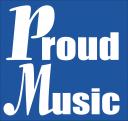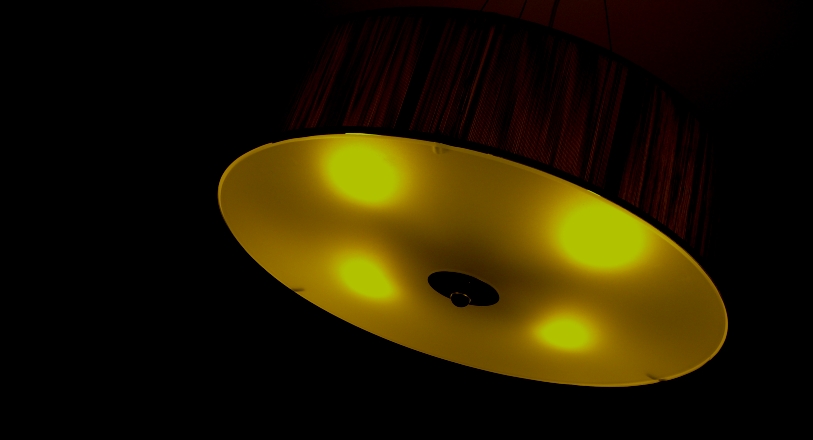Poet Samuel Johnson once said, “Self-confidence is the first requisite to great undertakings,” and nothing could be more assertive for Proud Music’s very own Heiko Klüh. He was direct and did not spare unnecessary words during our conversation, certain of what he said.
PM: Greetings, Heiko! Thank you very much for taking the time to talk to me about your work. I am very much looking forward to our conversation and learning about it.
Heiko: Certainly! Thank you for having me.
PM: When did you discover your love of music?
Heiko: Two things actually happened that contributed to my love of music. The first is that, when I was 16 years old, I decided to invest in a Commodore Amiga. At that time, it was the most sophisticated multimedia device, and I was interested in learning how to use it. That was not easy, but I persisted and experimented always more and more, and I soon began composing with Soundtracker. The second – some three years later, I was interested in this girl and took her on a date to see the movie Hook with Robin Williams. As we sat there, all I could think of was, “Wow! What an amazing soundtrack!” That was the beginning of my beautiful love affair with soundtrack music… Unfortunately, I was not as fortunate with the girl (laugh).Yes, Hook was the first soundtrack I bought, and then came Backdraft, with music from well-known Hans Zimmer. I started working harder, composing further with the Amiga, especially demo scenes and chip tunes, since at that time there were not as many instruments available to work with.
Later on, I inherited some money from my grandmother and bought myself a synthesizer. Then, I only dreamed of being able to make a living this way because it is costly. At the music fair in Frankfurt, I bought my first Steinberg Midi software, the Steinberg Pro 24 Amiga. At that time, I started studying social pedagogy. In the meantime, my sister met Tobias Richter, who is well-known for his Star Trek animations in Germany, and she introduced me to him. Thanks to this, I was hired to compose the opening films from The Light Works for the FedCon convention for three consecutive years. I reinvested the money I earned from the assignment in musical gadgets. In summary, I started composing film music, and afterwards received orders to compose synchronic. Nowadays, I do whatever fits the image.
After I finished my studies, I had the chance to work for a year with the regional TV station. At the same time, I received contracts for pieces. Once the internship came to pass, I had to decide what I wanted to do: practice social pedagogy or compose music? By then, I suspected I could make a living from music, took a chance, and the rest is history.
PM: With the introduction of music studio apps for iPad in the last couple of years, have you experimented with those?
Heiko: Well, I own an iPod for testing app development in sound, but I have not used those apps because the studio equipment is all I need. You take a particular sound or noise, and program it on the keyboard, and that is how you design. I recently created a piece with coughing as noise, something fun, you know.
PM: If you were not a composer, what would you have done instead? Would you have become a DJ, for example?
Heiko: A DJ? Not at all! My main job is as composer, but I also do sound design and work with voice over artists. Every client wants something different, and it is good to be able to offer them what they want. I actually graduated with a degree in social pedagogy with highest honors. If it had not worked with music, I would have pursued my field of study, more specifically media pedagogy. That is actually what my internship at the regional TV station was about. An office job is not for me. I was able to prove this after working in a tax office for nine months in Frankfurt. Of course, something positive came out of the experience, since I know now how to organize office work and do my taxes… My social skills help me be clear and flexible with different people, and that is also an important quality for working with voice over artists.
PM: Do you have a favorite composer?
Heiko: To say that I have a role model seems strange. I would rather say that I am fascinated by someone. Earlier, I was fascinated by John Williams and Hans Zimmer. Nowadays, I have no favorites, even though I still enjoy watching Hollywood productions and listening to their soundtracks.
PM: How would you describe your style?
In principle, I would say that it is that of the so called media music, which is the one made for trailers, commercials, 3D animatics, and image and industrial films, and deviates from the classic song form. Therein lies my strength, particularly with lounge, ambiance, and technical futuristic music. The music is electronically based, and many good quality instruments are also available electronically nowadays. On demand, I can also hire live musicians.
Nevertheless, I am an all-around composer, and I have a great array of sound effects. I work closely with clients, because in the end, it is their wish I have to fulfill.
PM: Is there a musician who has influenced your style?
Heiko: No, not really.
PM: Do you write, play, and produce all your pieces?
Heiko: Yes, I do everything in most cases. I have my own studio, and also mix and master myself. In the case of picture synchronization projects, I carry it out until the very end so nothing goes wrong when placing the sound in sync with the image. Everything has to go as planned, or otherwise, it can be quite annoying when you have an event and the sound does not come until later, so I try to accompany the process as long as possible. In some cases, I synchronize sound and picture with Adobe Premiere and deliver the final format myself.
PM: Do you know by any chance, how many pieces you have written until now?
Heiko: Surely, over 400, but they are not all complete songs. Most of Proud Music Library’s pieces, for example, originate from clients’ projects.
PM: Do you play any instruments?
Heiko: No, I do not. If I need an instrument played, guitar, for example, I usually hire somebody. I took one piano lesson at some time, but I found it somewhat boring so I did not pursue it further. I am a self-taught composer and work with Cubase.
PM: What is a normal day like for you?
Heiko: First, I get up and I eat breakfast. Then, I check e-mails. Whatever I do next depends on my to-do-list. Sometimes, I compose for the Proud Music Library, other times I try to become better acquainted with my tools because only in this manner will I be able to fine tune my technique. Jobs with a deadline need to be finished and delivered on time. When not, then, I compose and experiment. At the end of the day, it is important to think about what to do next and have a goal for the next day. It is of utmost importance to be organized and manage your time well, or you will not make it.
PM: Do you have a manager or do you take care of work and administration yourself?
Heiko: No, no; I am my own manager. I have experience with time management, so I know what it entails. I also market my own music.
PM: Do you follow a ritual or take special measures when you write your music?
Heiko: Well, I have a couple of different approaches. When I compose music, sometimes I try to imagine the kind of music and the mood, or a concrete cue, for example, technical, underwater, futuristic, Asian, and so on. Then, I look for a groove that I consider expandable. Next, come chords and harmony, and in the end, I add other elements. Other times I find something interesting in my sample library, and I start to create around a sequence from it. I also find that if there is a certain mood I want, I can get certain instruments that fit that mood. I have to try many tones and harmonies. There are some instruments, for example, that do not go with certain moods. Let’s say that you are working on an underwater mood, you would not use bongo drums. Bongo drums are instruments that go better with an earthly mood. With these rituals, it is important to commit oneself to the task and to “travel” with the elements. And then, once you start composing, it might happen that what you considered the beginning of your piece actually fits better someplace else.
With client projects, the process is different. Here, you have to work on specific requirements and serve them up. If the client brings you a commercial film, for example, you have to consider which music or composition or soundtrack, the tempo, and the possible instruments. Only after deliberating about these and having a head start, do I create a cue. And when I think, ‘that could work’, I get in touch with the client and inform him of my ideas to make sure that we are on the same page.
PM: So you are always in touch with your client?
Heiko: Oh, definitely! Communication with the client is key to ensuring that you are fulfilling his wishes and needs. You have to use your time effectively in order to reach the goal. You must work concretely in order to save time and meet the deadlines.
PM: Has there been a time when you have made a suggestion because in your opinion it was better than what the client requested?
Heiko: Yes, it has happened that I have thought, ‘I really think this would work better.’ And there are times, if somebody asks my opinion about something, I will gladly offer it.
PM: What advice would you give somebody who is thinking about becoming a composer?
Heiko: I would tell him two things. Firstly, if he is planning on doing it full time, he should. Secondly, he has to be ready to move forward against all resistance to his personal vision. This is the deal: When you work in a creative field, there are times when you are intrinsic, when you may suffer a setback, and you have to be able to really want to work in the field to overcome them. In other words, it takes a great deal of time and energy. When you earn your living from music, it is very different from writing music as a hobby. And I am not saying that a hobby cannot become a job. It is also important to be able to work creatively under pressure, because this job requires you to work under pressure. Independently from whether you are in a good mood or not, sometimes there is no time to be creative. You have to be able to put something workable together quickly, so it is possible to get 80-85% of your creativity into a project. But it is a business. If you are somebody who composes over time and cannot work under pressure, this is not the job for you. Notwithstanding, composing for Proud Music Library is advantageous because library music has become a major component of modern entertainment production.
PM: Are you saying you cannot be a perfectionist at this job?
Heiko: Oh, it is good to be a perfectionist! Nevertheless, there are tight deadlines, and you have to remember that you create on demand. When the client says, ‘no’, you have to be able to make changes. If you cannot deliver, there is no profit. In the end, you should never be afraid of the unknown because you can learn anything if you want to. It all comes with time, and you learn to deal with the demands. It is like a race: it becomes more interesting the longer you live. Music is a field you can work in for as long as you live. Similar to philosophy (laughs).
PM: What would you say is the hardest thing about what you do?
Heiko: I try not to go to bed with an unfinished task. I am very ambitious, and at the end of the evening, I want to know that I finished the job. Otherwise, everything is doable, but it has to be completed within a certain time.
PM: Do you consider that it makes a difference where you live when you are a composer?
Heiko: It is definitely beneficial to live in a media metropolis like Frankfurt, but I live in the country and, thanks to the Internet, I am able to produce considerably and overcome distances. I live with my girlfriend in town. She works here, and it was easier for me to move here. True, you could probably land interesting accounts in the city, but I can cope here, too. The greatest advantage is that costs are lower here than in the city. Working by myself, there is a certain amount of work you can produce and not more. What I need is not 400 clients, but rather a number of them that know to respect what I can do. The quality of life and the air in the country are incomparable. I spent a week in Berlin and I had fun, but I came back and told the neighbors, “Now I am going to do my ‘air cure’”. You know, there are people who can work in a variety of settings. Take Frank Herrlinger, for example. The other day, he was doing his work at the pool. I cannot. Of course, in the city people know what my job is about and they say, “How cool!”. Here, people often ask, “Can you live from that?”
PM: Thank you very much for your time. It has been a pleasure getting to know you.
Heiko: The pleasure was mine!
After the interview, we continue to chat briefly, and we finally part. I am very happy to have had the chance to interview Heiko, since before this day, I had very little idea of what it entails to write and produce electronic music, and I now have gained an appreciation for it.








